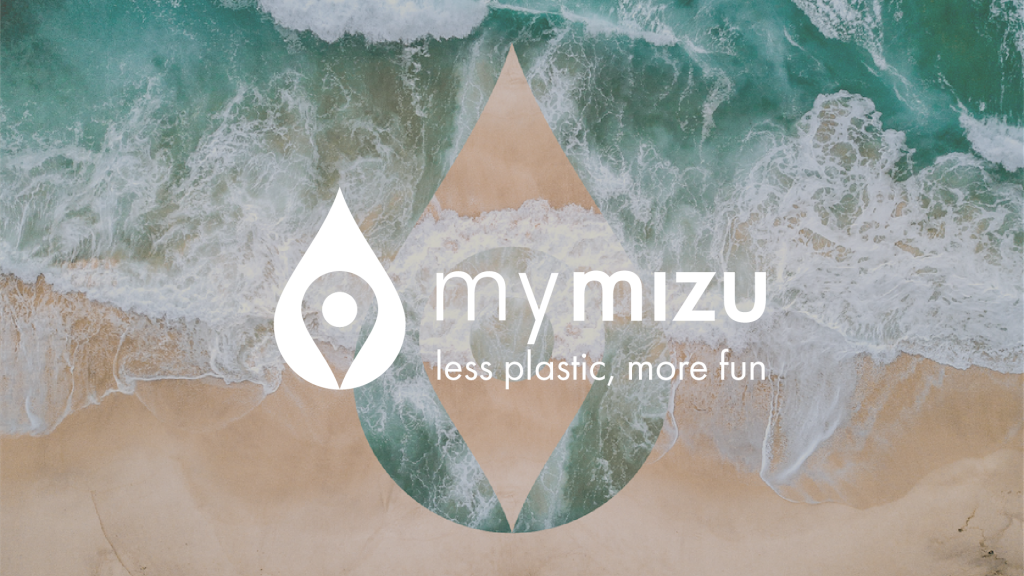
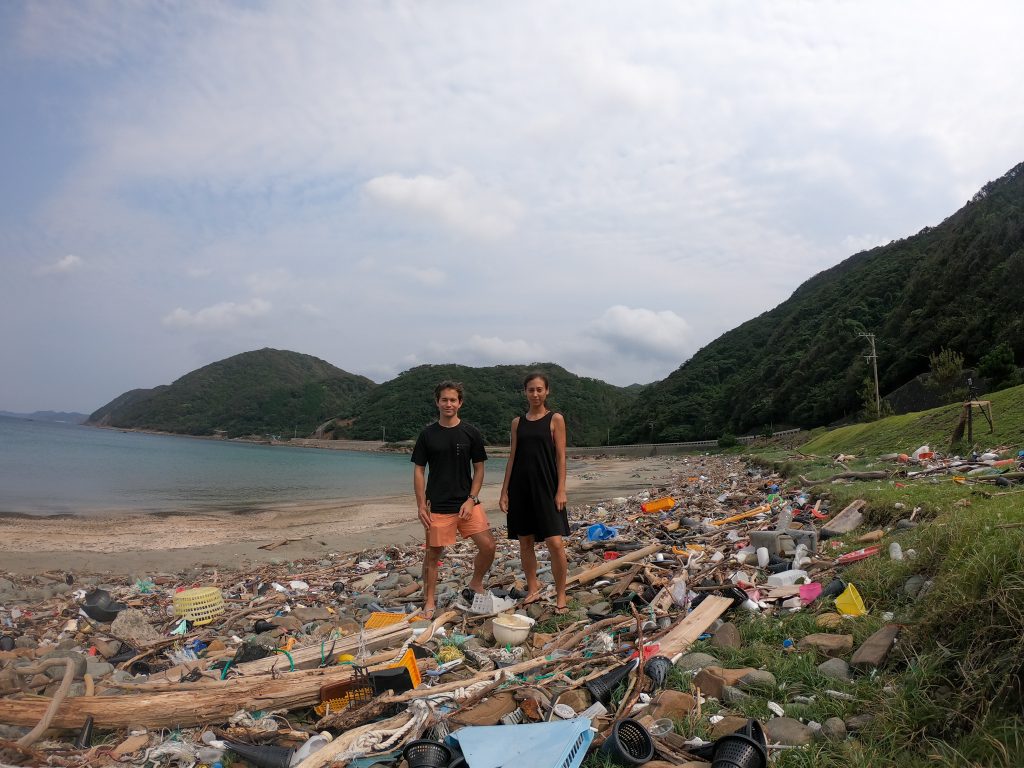
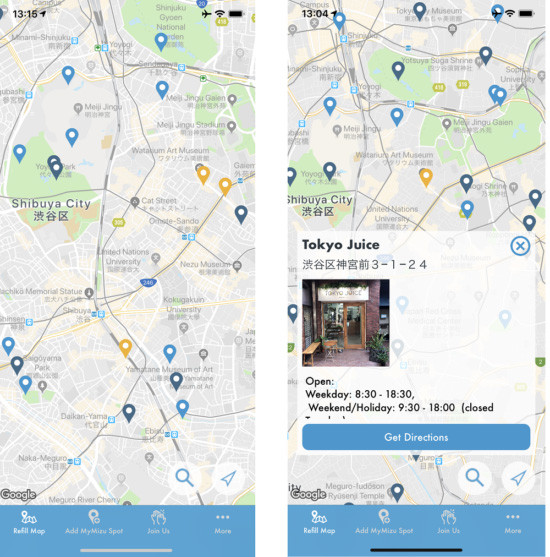
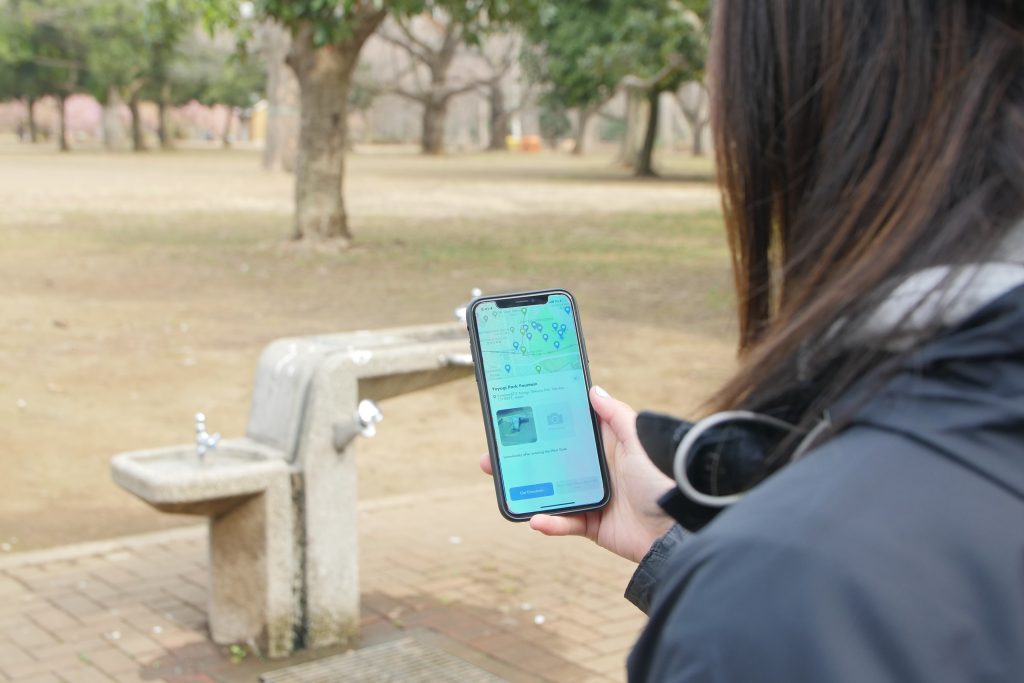
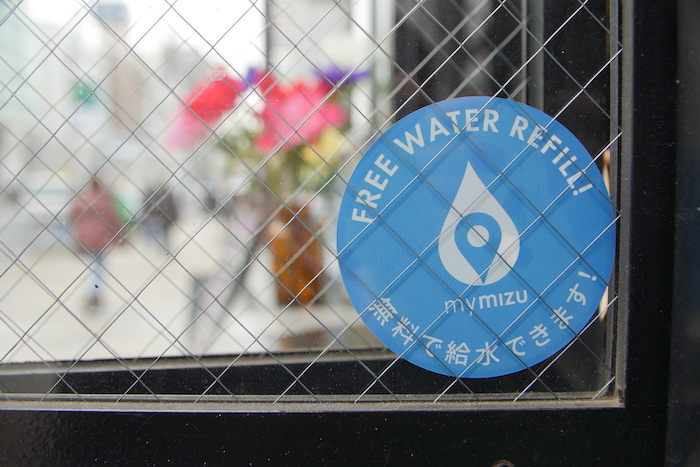
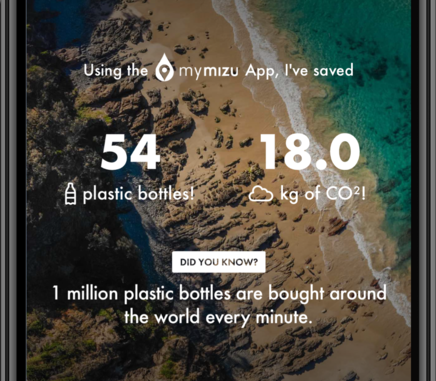
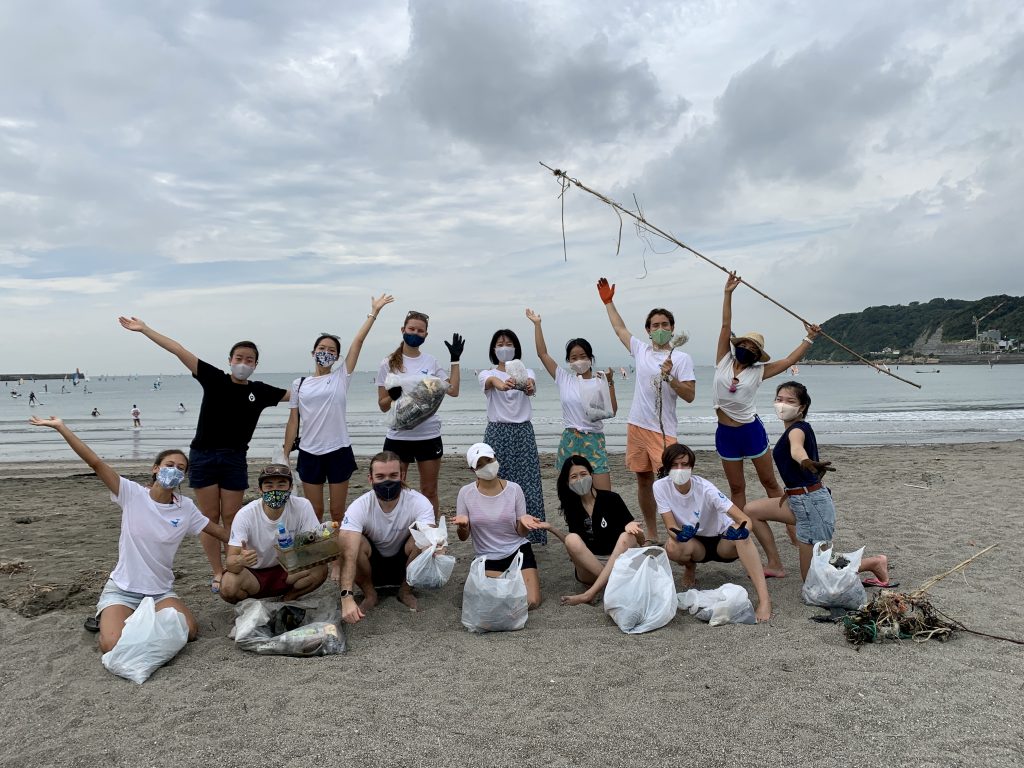
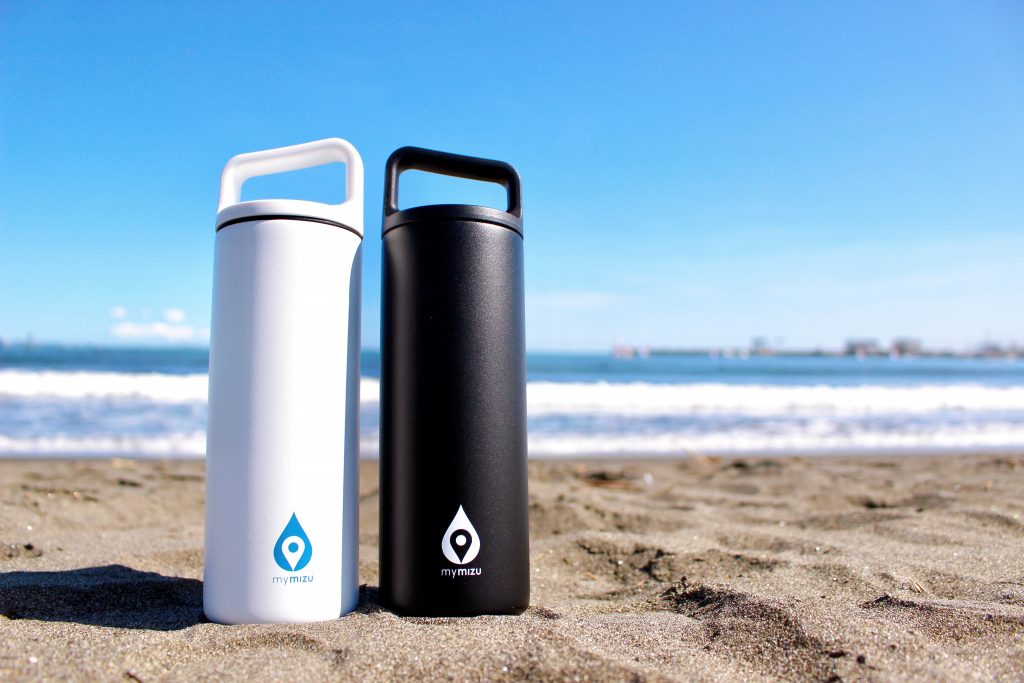








Carla Chahrour
A total of 1 million plastic beverage bottles are purchased every minute around the world, while a staggering 8 million tons of plastic ends up in the oceans annually.
The impact of the tide of plastic has become one of the biggest environmental scourges of the century.
As production of disposable plastic products proliferates, it overwhelms the world’s ability to deal with them. While plastic pollution is most apparent in developing Asian and African nations, where waste management and collection systems are often inefficient or nonexistent, the developed world, specifically countries with low-recycling rates, also have trouble properly collecting discarded plastic, according to the UN Environment Program.
Japan’s first free water refill app mymizu aims to reduce polyethylene terephthalate (PET) bottle consumption — commonly used for mineral water — and build a movement for environmental sustainability both regionally and internationally.
The free smartphone app connects its users to more than 8,000 refill stations throughout Japan and 200,000 worldwide, including public water sources such as water fountains and private partner businesses that range from small, family-run businesses to household names such as Audi, IKEA and Hilton Hotel.
In an exclusive interview with Arab News Japan, co-founder of mymizu, Robin Lewis, spoke about the inspiration behind the app and the organization’s mission.
For more than 10 years, Lewis has worked with social enterprises, NGOs, and inter-governmental organizations (including consultancy roles at the World Bank and UN Development Program) and has managed humanitarian operations in countries such as Haiti, Nepal, Vanuatu, and Mozambique.
Born in Japan and raised between Japan and the UK, the force behind the sustainable movement entered the humanitarian world after the 2011 Fukushima nuclear accident in Japan. The incident was the starting point of Lewis’ current endeavor and a turning point in his life as it prompted him to forgo a career in business to pursue one involved in humanitarianism.
“The one turning point in my life was the 2011 tsunami and Fukushima nuclear crisis in Japan. I was in the UK at the time, but I came back because of the tsunami and the Fukushima crisis. And that was a very big experience for me and my family, who’s originally from that part of Japan, so I came back and started working in the humanitarian world,” he said.
“I was studying business at university, but I wanted to do something related to social impact and improving local communities. So, I worked in NGOs and continued to work in the humanitarian sector for about five or six years. I was also working with natural disasters and climate change, for NGOs and for intergovernmental organizations,” Lewis added.
While in recent years a growing number of cities and countries have passed laws that ban or tax plastic bags, voluntary reduction strategies such as mymizu serve as an effective alternative to such bans as they allow citizens time to change their consumption patterns and provide an opportunity for affordable and eco-friendly alternatives to make their way into the market.
The promotion and adoption of reusable water bottles is an example of a reduction strategy where the choice lies with the consumer. This strategy has the ability to change consumer behavior and reduce the use of conventional plastic bottles through the provision of an easily accessible, free alternative.
Allowing users to visualize the impact of their actions, the app provides a “refill tracker” that tracks the amount of single-use plastic bottles, money and carbon dioxide each user has individually saved by refilling their own bottles, while simultaneously displaying the three indices on a larger scale to show the total amount saved by all users on the platform. In doing so, the app creates a sense of common purpose between its users, which could drive competition and enhance motivation by compelling individuals to realize that they can either be part of the solution, or part of the problem.
Similar dynamics apply to mymizu’s private partner businesses, as it offers them the ability to engage in the Sustainable Development Goals and helps them play their part in both, combatting plastic waste and contributing towards a more sustainable society. Over 750 businesses have registered nationwide to provide free drinking water through the mymizu platform, enabling people to refill instead of buying bottled water.
Japan is the world’s second-largest generator of plastic packaging waste on a per-capita basis after the US and is followed by the EU, according to the UN Environment Program.
The conveniences that plastics offer, such as cheap material, easy production, and lightweight products are undeniable. However, it has led to a throw-away culture that reveals the inconvenience of the material, which is that single-use plastics account for 40 percent of the plastic produced every year.
The majority of these products, such as water bottles, have a lifespan of mere minutes to hours, yet they may persist in the environment for hundreds of years.
Lewis said: “Japan is also the world’s second-largest consumer of plastic packaging per-capita. Every single year, Japan produces about 25 billion plastic bottles, which is enough to go around the world, about 128 times.”
While Japan’s recycling technology and infrastructure are advanced, Lewis pointed out that a lot of the plastic consumed is not recycled, with approximately 3.5 billion bottles incinerated, sent to landfills, or simply lost to waterways and the oceans annually.
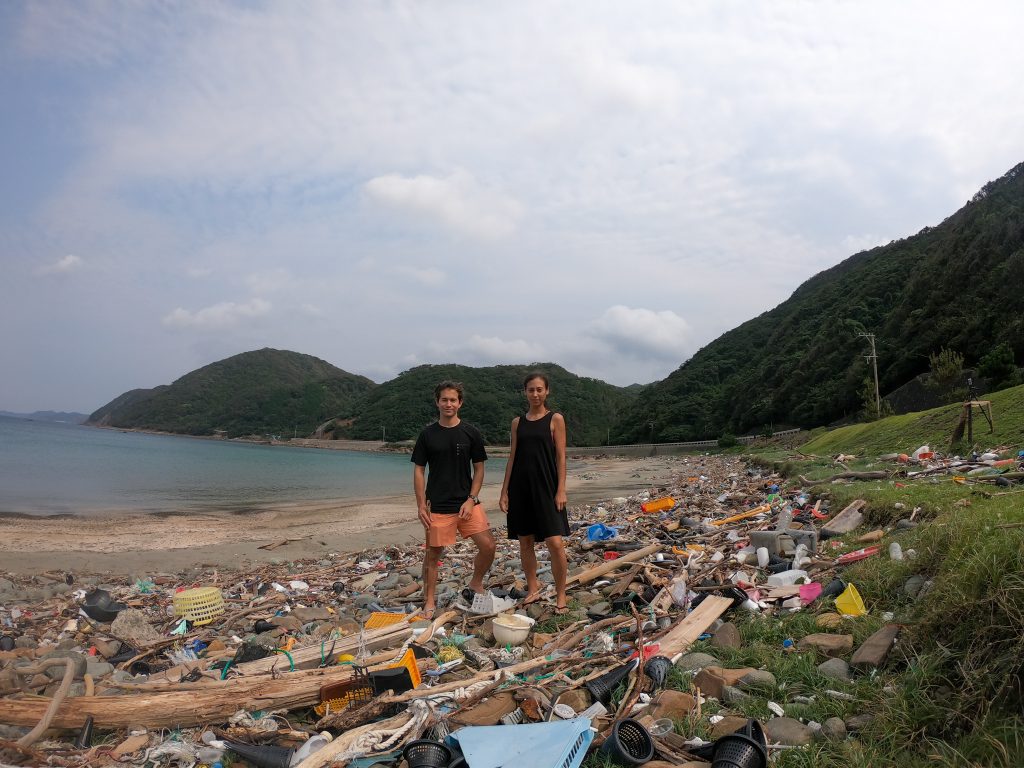 The co-founders of mymizu Robin Lewis (L) and Mariko McTier (R). (mymizu/supplied)
The co-founders of mymizu Robin Lewis (L) and Mariko McTier (R). (mymizu/supplied)“The myth is that we recycle lots of plastic, the truth is that we burn a lot of it. Between 50 and 70 percent of the so-called recycled plastic is burned through a process called thermal recycling and we also export a lot of plastic waste to other countries in many other parts of Asia. So, it’s actually a really big environmental problem that doesn’t get so much focus here in Japan,” Lewis said.
“That is why what we are doing is not just providing an app, we do a lot of communications and workshops. We get the word out there, we educate. Because ultimately, unless people understand the problem, there’s no solution,” he added.
“It’s not about recycling. We cannot just keep recycling our way out of this. We have to fundamentally reduce the consumption of single-use plastic.”
Robin Lewis
The amount of plastic produced and consumed in Japan can partly be blamed on the cultural preference for elaborate packaging, where consumers associate wrapped items with luxury and high-end customer service.
While aesthetically pleasing, the effects of the excessive use of plastic are starting to make themselves apparent and have left Japan struggling to cope, specifically after 2017, when China barred imports of plastic waste. Introduced as part of a broader clampdown on pollution, it took waste exporters, such as Japan, by surprise.
Japan is under rising pressure both domestically, from groups such as Greenpeace Japan, and internationally, from the G7 intergovernmental organization where Japan faced criticism for being “insufficient to avert the plastic crisis” in 2018 after it declined to join the G7 Ocean Plastics Charter, which was a landmark agreement outlining concrete steps to eradicate plastic pollution.
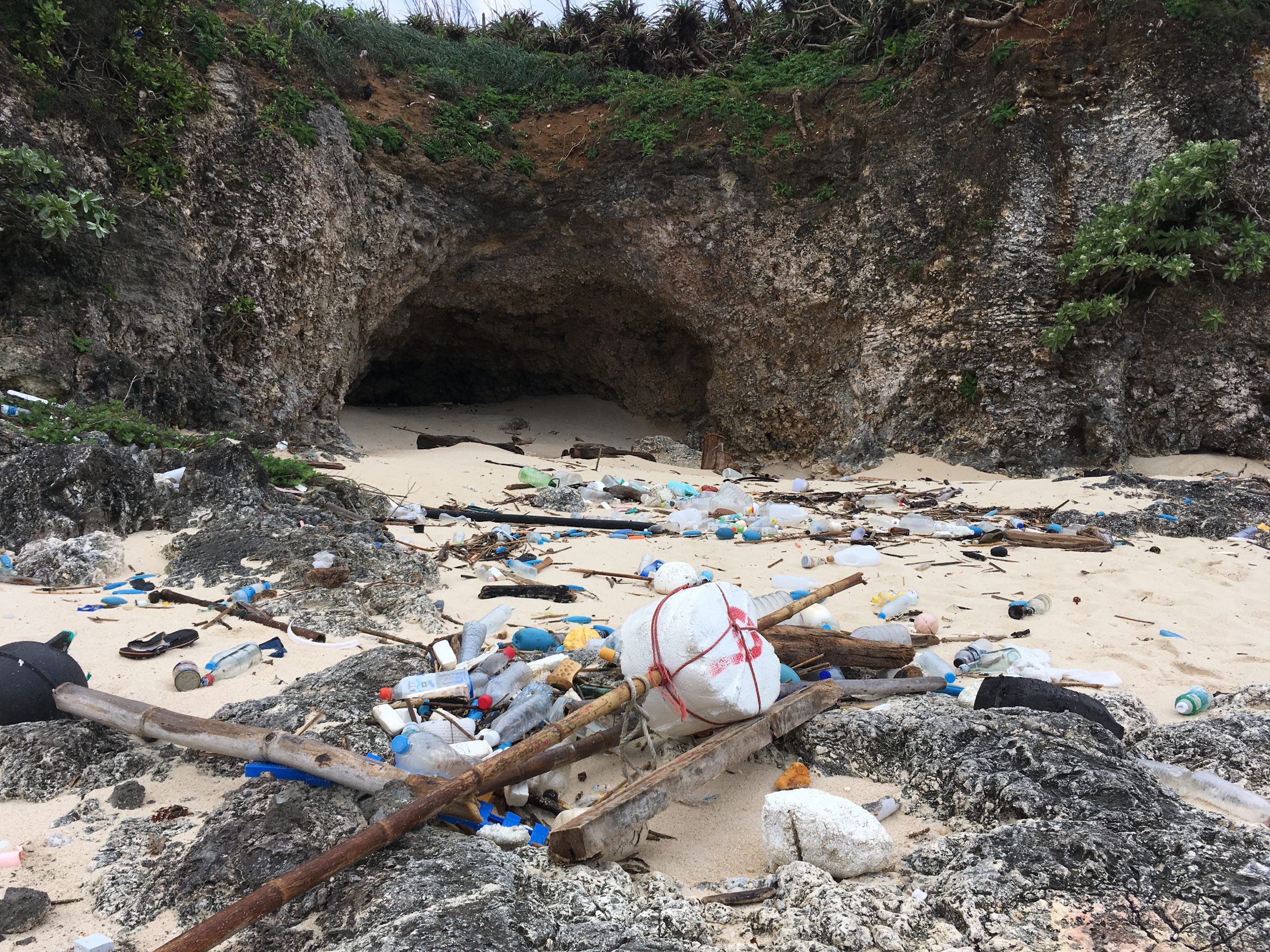 Plastic waste and other rubbish seen on the shore of a beach in Okinawa. (mymizu/supplied)
Plastic waste and other rubbish seen on the shore of a beach in Okinawa. (mymizu/supplied)In 2018, Lewis and his co-founder Mariko McTier went for a walk along the beach in Okinawa where they discovered a pile of rubbish that had drifted in from the ocean. Most of it consisted of plastic and more specifically, plastic bottles.
Lewis noted that the irony of the situation was the fact that in Japan water could be attained and drunk from anywhere.
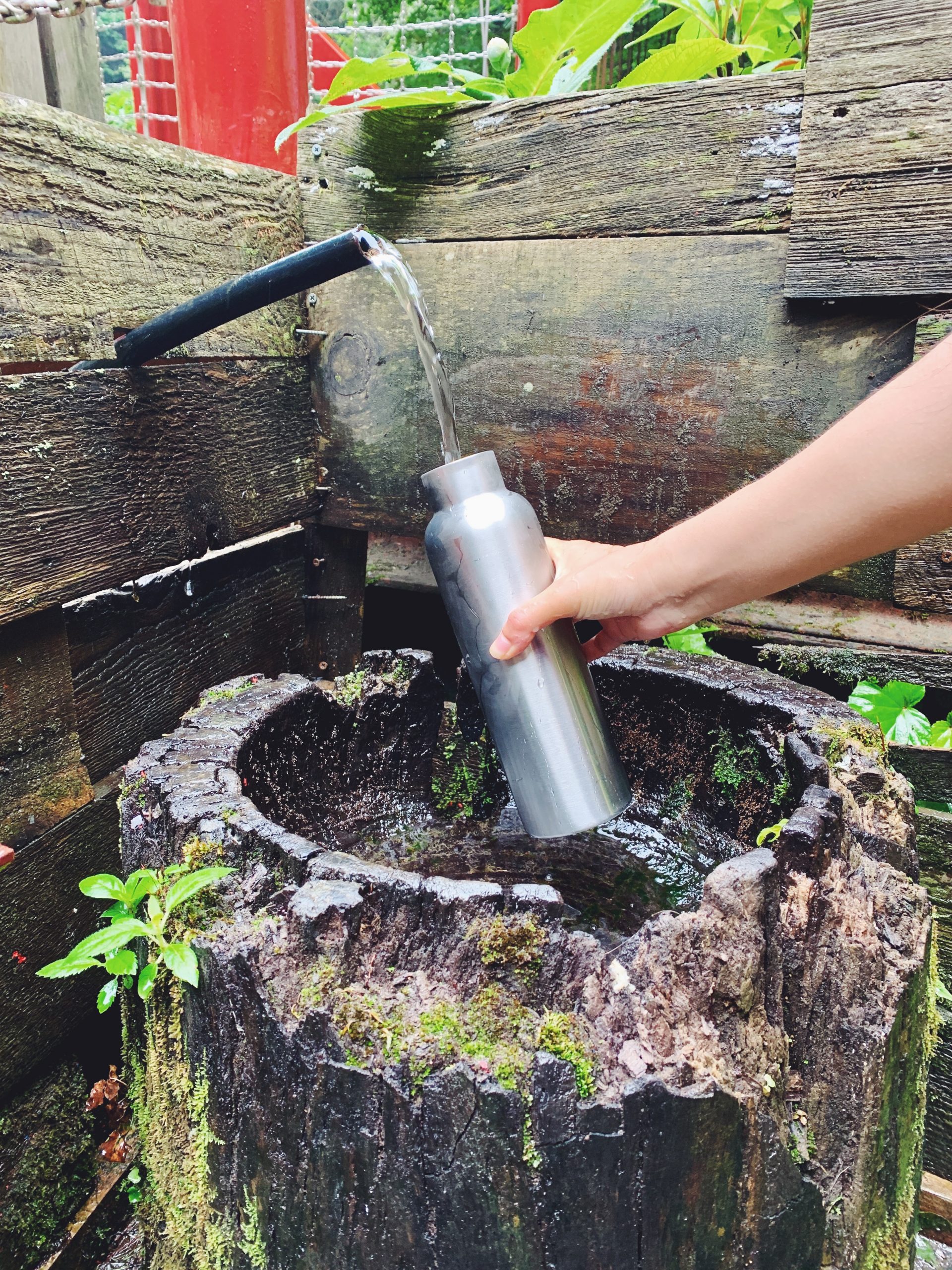 (mymizu/supplied)
(mymizu/supplied)“There was this real irony around, the fact that we live in a country where you can really drink any water. We are very lucky to be living in such a country where you can drink water from anywhere, yet this growing bottled water industry is having an increasing impact on the environment,” Lewis said.
“And many of these bottles end up on the beaches of not just Japan, but also other countries, too. So that was when we thought, okay, we have to do something about this,” he added.
Seeing the amount of plastic on the beaches of Okinawa prompted Lewis and McTier to attempt to do something about the plastic pollution through creating a new ecosystem that enabled people to refill their water bottles anywhere they went.
The only way of having a significant impact was through inventing a refill system that was more convenient than convenience stores, supermarkets, and vending machines, which are abundant throughout Japan.
“Our goal from the very beginning was to create a new ecosystem, not just sell reusable bottles, because anyone can do that. But our goal was to really try and create a systemic change through building this new ecosystem,” Lewis said.
On Sep. 20, 2019, Social Innovation Japan, a registered non-profit organization with a mission to activate greater social innovation in and out of Japan, officially launched mymizu, coinciding with the opening of the Rugby World Cup (considered the world’s third-largest sporting event) and the Global Climate Strike (an international demonstration for urgent action on the environment).
With users in over 40 countries, MyMizu had engaged with 70,000 people through the app, tracked the reduction of 100,000 PET bottles and reduced more than 20,000 kilograms of carbon dioxide emissions via the ‘refill tracker’ function, simply by refilling their bottles instead of buying PET bottles. Furthermore, the crowdsourced app has amassed 200,000 refill points across the world, becoming one of the largest and fastest-growing databases of drinkable water.
On top of mymizu’s free water refill app, the organization has also been involved in running workshops, seminars, and educational initiatives related to sustainability for companies, universities, and schools.
Additionally, the organization offers consultancy services, lifestyle products, and collaborations in order to educate people to shift toward more sustainable lifestyles and hosts beach cleans throughout Japan to engage communities in the active role of removing deposited garbage from beaches.
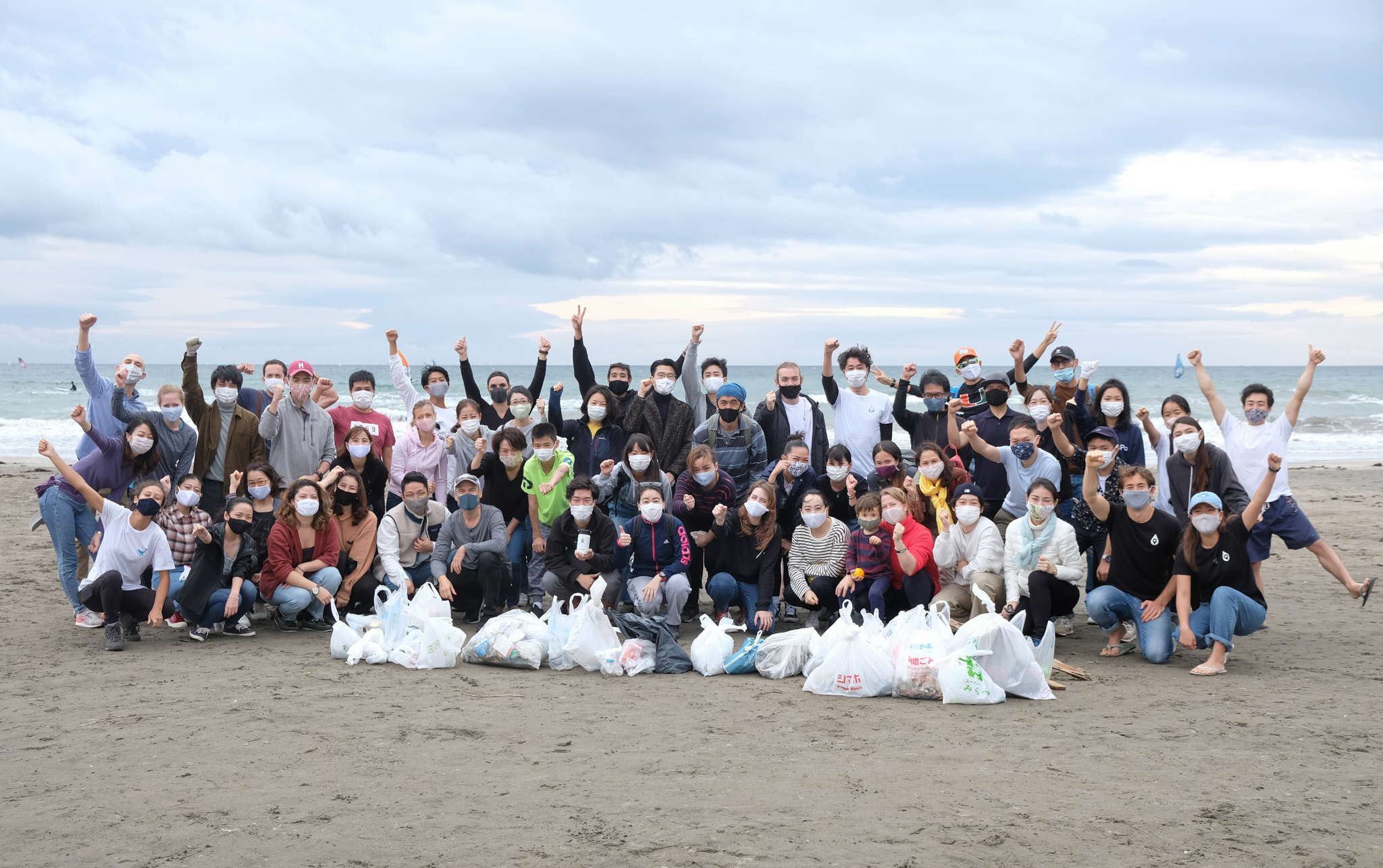 (mymizu/supplied)
(mymizu/supplied)A noticeable collaboration includes contracts with local governments to assist them in the reduction of plastic consumption and the development of more sustainable cities.
On the changes he would like to see in the world of consumerism, Lewis said that the solution was not recycling but rather on fundamentally reducing the use of carbon-intensive and damaging materials such as plastic. For this to happen, he added, people would need to understand the impact their daily behaviors had on the environment.
“We’re creating a movement. We have engaged literally hundreds of thousands of people just in this first year through our events, through our app, through all of our communications, through our partnerships with so many different organizations.”
“And we’re really shifting. I really believe that we are shifting the needle and moving it forward on this agenda of sustainability, because ultimately, while regulation is important in these things, consumers and the people have the power to change society.”
Lewis said he believed that Japan was a very environmentally friendly country that had a strong coexistence with nature, which was evident in Japanese values. However, due to rapid economic growth in the 1970s, 1980s, and 1990s there had been a shift away from traditional values and a rise of consumerism, as had been the case for many other countries, he added.
Through mymizu, Lewis hopes to be able to help people regain that connection with nature by understanding the impact of their behaviors as consumers on the environment and on the world.
“mymizu is really building this movement, building this critical mass that we need to move this conversation forward in a really big way. And I think we are also helping build the future of urban spaces,” Lewis said.
“We are seeing more and more warm temperatures across the world. We are seeing people suffer more from dehydration. At the same time, we are seeing an increase in usage of plastic, of single-use plastic.”
“So, if we can create urban spaces where you can refill your water bottle, stay hydrated without the plastic, then that is a really simple way of creating a more livable and more environmentally friendly urban space.”
“That is what I see us doing, is helping to build the future of urban spaces while also creating this movement and building this critical mass for sustainability,” he added.
mymizu serves as a testament to how a small action can have a disproportionately large impact on the issue of sustainability.
With a larger mission of helping people shift away from environmentally damaging behaviors to more sustainable actions, the organization operates as a leverage point in the form of a simple alternative that can ultimately facilitate toward broader social impacts that offer a promising chance to help avoid the cataclysmic consequences of plastic waste leaking into the environment.